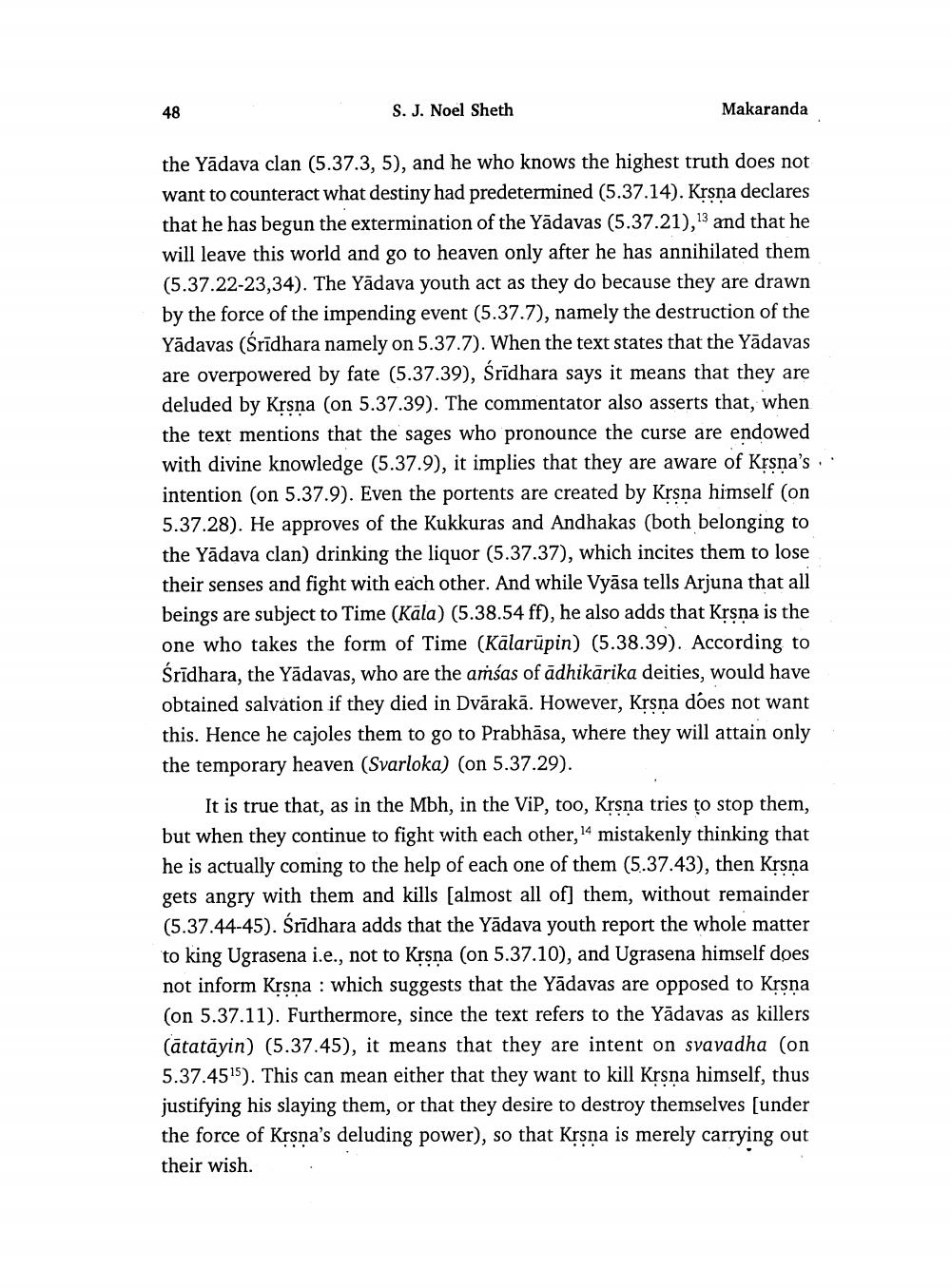________________
48
S. J. Noel Sheth
Makaranda
the Yādava clan (5.37.3, 5), and he who knows the highest truth does not want to counteract what destiny had predetermined (5.37.14). Krsna declares that he has begun the extermination of the Yādavas (5.37.21),13 and that he will leave this world and go to heaven only after he has annihilated them (5.37.22-23,34). The Yādava youth act as they do because they are drawn by the force of the impending event (5.37.7), namely the destruction of the Yadavas (Śrīdhara namely on 5.37.7). When the text states that the Yādavas are overpowered by fate (5.37.39), Sridhara says it means that they are deluded by Krsna (on 5.37.39). The commentator also asserts that, when the text mentions that the sages who pronounce the curse are endowed with divine knowledge (5.37.9), it implies that they are aware of Krsna's : intention (on 5.37.9). Even the portents are created by Krsna himself (on 5.37.28). He approves of the Kukkuras and Andhakas (both belonging to the Yādava clan) drinking the liquor (5.37.37), which incites them to lose their senses and fight with each other. And while Vyāsa tells Arjuna that all beings are subject to Time (Kāla) (5.38.54 ff), he also adds that Krsna is the one who takes the form of Time (Kälarūpin) (5.38.39). According to Śrīdhara, the Yādavas, who are the amśas of adhikārika deities, would have obtained salvation if they died in Dvārakā. However, Krsna does not want this. Hence he cajoles them to go to Prabhāsa, where they will attain only the temporary heaven (Svarloka) (on 5.37.29).
It is true that, as in the Mbh, in the Vip, too, Krsna tries to stop them, but when they continue to fight with each other, 14 mistakenly thinking that he is actually coming to the help of each one of them (5.37.43), then Krsna gets angry with them and kills (almost all of] them, without remainder (5.37.44-45). Śrīdhara adds that the Yādava youth report the whole matter to king Ugrasena i.e., not to Krsna (on 5.37.10), and Ugrasena himself does not inform Krsna : which suggests that the Yādavas are opposed to Krsna (on 5.37.11). Furthermore, since the text refers to the Yādavas as killers (ātatāyin) (5.37.45), it means that they are intent on svavadha (on 5.37.4515). This can mean either that they want to kill Krsna himself, thus justifying his slaying them, or that they desire to destroy themselves (under the force of Krsna's deluding power), so that Krsna is merely carrying out their wish.




